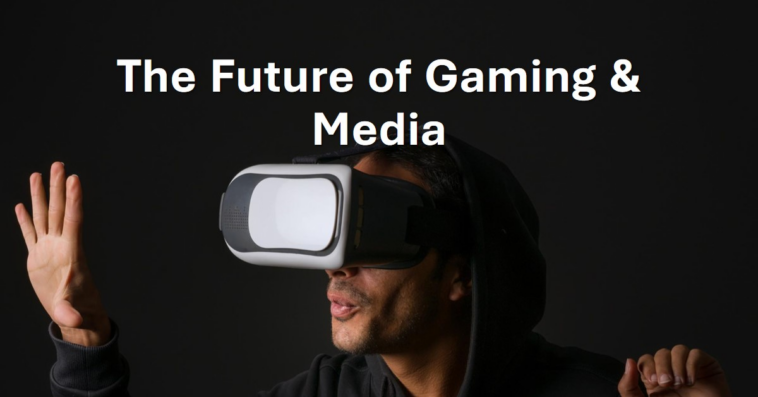In 2024, the gaming and media sectors are experiencing unprecedented transformation driven by emerging technologies. As these industries adapt to rapid changes in consumer behavior and technological advancements, product engineering services play a pivotal role in driving innovation, enhancing user experiences, and staying competitive. From artificial intelligence to extended reality, these technologies are redefining the way games and media content are created, distributed, and consumed. This article delves into the key technologies influencing product engineering services in the gaming and media sectors and explores how companies like P99Soft are contributing to this evolution with their expertise in software product engineering consulting and E-Governance.
1. Artificial Intelligence (AI) and Machine Learning (ML)
AI and ML have become integral components of product engineering in the gaming and media sectors. These technologies enable the creation of more immersive and personalized experiences by analyzing vast amounts of data to understand user preferences and behaviors.
AI in Gaming: In the gaming sector, AI is used to enhance non-playable characters (NPCs), making them more responsive and adaptive to player actions. For instance, AI algorithms can analyze player behavior to adjust the difficulty level dynamically, providing a tailored gaming experience. AI also helps in developing sophisticated in-game environments that can evolve based on player interactions, thereby enhancing the overall engagement.
AI in Media: In the media sector, AI-driven tools are being used for content creation, curation, and recommendation. AI algorithms analyze viewer preferences and recommend personalized content, thereby increasing viewer retention rates. In 2024, AI’s role in media extends to automated content creation, such as generating news articles, summaries, and even visual content, which saves time and reduces costs.
Statistics: According to a report by MarketsandMarkets, the global AI in gaming market is expected to grow from USD 1 billion in 2021 to USD 5.5 billion by 2026, at a CAGR of 40.8% . Similarly, AI in the media industry is projected to reach USD 4.5 billion by 2026, reflecting the increasing reliance on AI technologies for content personalization and creation .
2. Extended Reality (XR): VR, AR, and MR
Extended Reality (XR), encompassing Virtual Reality (VR), Augmented Reality (AR), and Mixed Reality (MR), is reshaping how games and media content are produced and consumed.
XR in Gaming: VR and AR have been game-changers in the gaming sector, offering players immersive experiences that go beyond traditional gameplay. In 2024, the integration of XR technologies in gaming continues to grow, enabling more interactive and immersive experiences. Games that use AR can blend real-world environments with digital overlays, offering a unique gaming experience that was previously unimaginable.
XR in Media: In the media sector, XR is used for storytelling and content creation. AR is being utilized to create interactive advertisements, while VR provides immersive experiences such as virtual tours of properties or behind-the-scenes content for movies and TV shows. MR combines both AR and VR, allowing users to interact with both physical and digital elements in real-time, which is especially useful for training simulations and interactive media experiences.
Statistics: The global XR market is expected to grow from USD 31 billion in 2021 to USD 300 billion by 2024, driven by increasing adoption in gaming and media industries .
3. Blockchain Technology
Blockchain technology is revolutionizing the gaming and media sectors by providing secure, transparent, and decentralized platforms for content distribution and monetization.
Blockchain in Gaming: Blockchain is being used to create decentralized gaming ecosystems where players have true ownership of in-game assets. Non-Fungible Tokens (NFTs) have become a significant trend, allowing players to buy, sell, and trade unique digital assets securely. This technology also facilitates play-to-earn models, where gamers can earn cryptocurrency by participating in games, thus enhancing player engagement and loyalty.
Blockchain in Media: In the media sector, blockchain offers a solution to issues related to digital rights management and piracy. By using blockchain, media companies can ensure transparent and secure transactions, fair revenue distribution to content creators, and protection of intellectual property rights.
FAQs
1. What is the role of AI in gaming and media in 2024?
AI is used in gaming for creating more adaptive and responsive NPCs and personalizing user experiences. In media, AI helps in content recommendation, creation, and personalization, enhancing viewer engagement and retention.
2. How is blockchain technology being used in the gaming sector?
Blockchain technology is used to create decentralized gaming ecosystems, allowing for secure transactions of in-game assets and supporting play-to-earn models through NFTs and cryptocurrencies.
3. What benefits does 5G bring to the media sector?
5G technology offers faster data speeds and lower latency, enabling improved streaming quality, real-time content delivery, and more immersive experiences like 360-degree videos and AR content.
4. How does cloud computing impact the gaming industry?
Cloud computing allows for game streaming services, making high-quality games accessible without expensive hardware. It also provides scalability and flexibility in game development and delivery.
5. What is Extended Reality (XR), and how is it used in gaming and media?
XR encompasses VR, AR, and MR, providing immersive experiences in gaming through interactive environments and in media for creating engaging content and advertisements.
Conclusion
The gaming and media sectors are at the forefront of technological innovation, driven by advancements in AI, XR, blockchain, cloud computing, and 5G. These emerging technologies are transforming product engineering services, enabling companies to create more immersive, personalized, and efficient products and experiences. As the industry continues to evolve, companies must adapt and innovate to meet changing consumer demands and technological advancements. With expertise in software product engineering consulting and E-Governance, P99Soft is well-positioned to help gaming and media companies navigate these changes and thrive in a competitive market. Are you ready to embrace these emerging technologies and transform your gaming or media business?
Also know AI-Driven CRM for Banking & Insurance
This post was created with our nice and easy submission form. Create your post!





